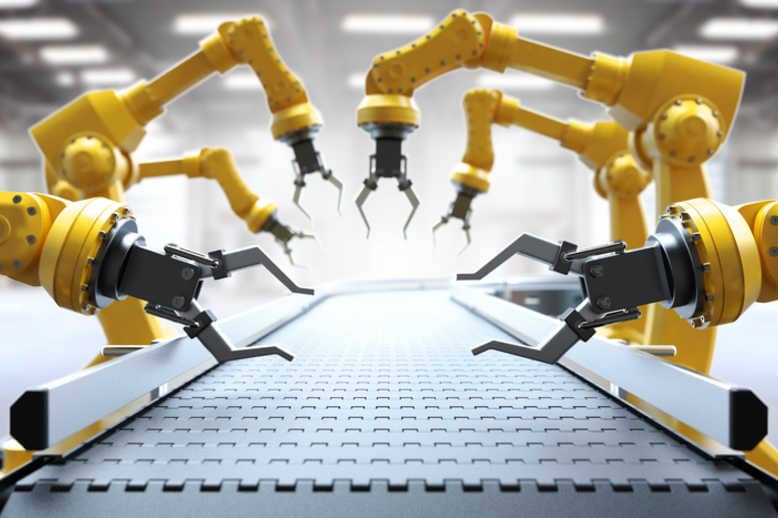
According to an analysis firm Oxford Economics, up to 20 million manufacturing jobs around the world could be replaced by robots by 2030, with about 14 million manufacturing jobs lost in China alone.
- Over the past 20 years, the number of robots currently in the global workforce has multiplied threefold doubling since 2010.
- Every third robot is installed in China which accounts for about 20% of robots worldwide.
- Since 2004, each new robot is installed in the manufacturing sector which has displaced an average of 1.6 workers worldwide.
According to Oxford Economics, the areas where people require lower skills, or which tend to have weaker economies are much more vulnerable to the loss of jobs due to robots.
The rise of ‘Industry 4.0′ (aka the ‘Fourth Industrial Revolution’) may lead to the decimation of jobs in manufacturing and service sector, warning the government to take suitable steps in this regard.
The report outlines the three biggest reasons for the robot surge are:
- Cost
- Capability
- The rise in demand for manufactured goods
With the advancements in technology, robots are quickly becoming more capable and advanced in completing a task. The concept of Artificial Intelligence (AI) helps robots to learn and make informed decisions and carry out more sophisticated processes. Some of the examples are:
- Robots like Miso Robotics’ burger-preparing Flippy are capable of preparing meals and at a speed that human chefs struggle to achieve. It doesn’t even need human waiters to deliver the food to customers.
- Technologies like 3D food printing will also make possible the creation of entirely new dishes, therefore taking the jobs of the chef.
- Self-driving cars are gaining popularity which will have an enormous impact on professional human taxi drivers
- Google is now funding the creation of job journalist could be used to help personalize human-written stories for readers.
Also, the cost of machinery has drastically declined. This has made robots cheaper than humans. The processing power of microchips, longer battery life and smarter networks have dramatically increased the per-unit value of robots, and their costs have dropped 11% from 2011 to 2016.
According to researchers from Oxford, the rise in automation will fuel social and economic stresses in terms of unemployment and income inequality with increasing political polarization.
Robots are steadily gaining attention in specific sectors of the service economy, such as baggage handling at airports or loading inventory in warehouses. Transport, maintenance and construction are also likely to shrink. While law and journalism are fairly safe.
The report also stated that artificial intelligence may create as many jobs as it kills. With that said, it impacts countries disproportionately, for example, in China 550,000 jobs have been lost to since 2000, while in the U.S. the figure stands for 260,000 jobs.
According to the analysis, replacing humans in service sectors that demand compassion, creativity, and social intelligence will be difficult for robots. This includes dog trainers, social workers, physical therapists, are likely to remain secure in their jobs.
